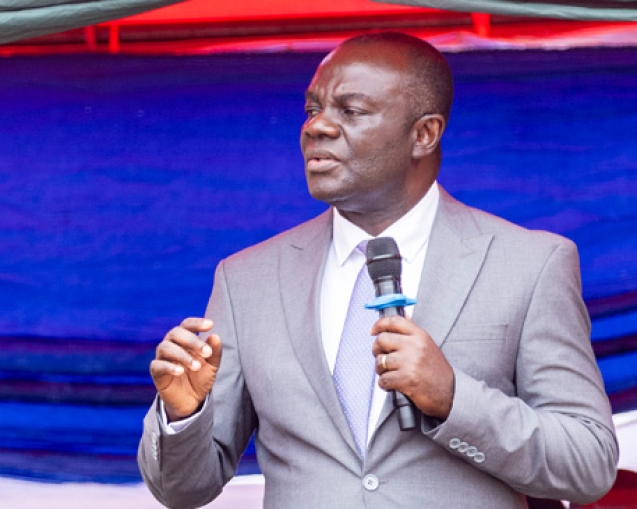Introduction
As we observe the 2025 edition of Pentecost Week, a season of waiting on God through fasting and prayer, I feel compelled to share some insights on biblical fasting. I present it in a concise, step-by-step manner to aid understanding. I am hopeful that this will serve as a useful guide for any believer seeking to engage in a fast now or later.
Fasting: What it is
- Biblically, fasting involves voluntarily abstaining from food, and at times, water, for a set period to fulfill a spiritual purpose.
- It is neither a way to punish the flesh nor manipulate God to do what we wish or want. Rather, it is a way to redirect our attention to God, seek Him in humility, and express our need for and total dependence on Him.
- Fasting is not a means of salvation, which comes solely through faith in Jesus Christ. (Romans 10:9-10, Ephesians 2:8-9).
- Anyone can fast, but the intensity or manner of it may vary from one person to another for some justifiable reasons.
- Here are some examples of Bible characters who engaged in fasting: Moses (Exodus 34:28), Elijah (1 Kings 19:5-8), Daniel (Daniel 10:2-3), Jesus (Luke 4:1-3), among others.
The Purpose of Fasting
The purpose of biblical fasting has always been spiritual rather than material. Here are seven of them. There may be other reasons.
- To demonstrate repentance and a commitment to returning to God after a period of sin (1 Samuel 7:6).
- To seek a closer relationship, deeper fellowship, or stronger intimacy with God (Matthew 4:1-11).
- To seek God’s direction or guidance before making key decisions (Acts 13:2-3; 14:23).
- To seek divine strength or empowerment for a given task, assignment or mandate (Isaiah 40:29-31).
- To seek God’s favour and protection (Ezra 8:21-23).
- To seek liberation from a demonic attack or oppression and destroy the works of the devil (Matthew 17:21, Mark 9:29).
- To present a felt need to God (Philippians 4:6-7, 19).
Types of Fasting:
- Absolute or Full Fast – This is when one abstains totally from both solid and liquid food and water. Examples can be found in Esther 4:16 and Acts 9:9. This type can be very severe and even dangerous if extended over time, except in supernatural cases like Moses’ fast (Exodus 34:28, Deut. 9:9).
- Complete or Regular Fast – This is when one abstains from all food (both solid and liquid), but drinks water. An example is Jesus’ fast; the Bible indicates that He abstained from food (Luke 4:1-2).
- Liquid Fast – This is when one abstains from all solid foods, but takes in liquids such as fresh juice, soup, smoothie, or beverages with no or very low sugar. This type is helpful for individuals who, for certain medical reasons, cannot practice the complete or regular type of fast.
- Partial Fast – This type, sometimes referred to as the ‘Daniel kind of fast,’ involves eating only vegetables or plant-based foods and water (Daniel 1:8-16). It may also mean reducing the number of times one eats in a day. Like a liquid fast, this type is recommended for people with certain medical conditions.
How to Prepare for a Long Fast
- To get the body ready for a long fast, it is recommended that we cut down on food intake and drink more water in the days leading up to the long fast. Avoiding processed foods, sugary drinks, and excessive caffeine, and focusing on whole grains, lean proteins, fruits and vegetables can be helpful.
- Set a clear and definite purpose for wanting to fast. It could be within any of the objectives mentioned earlier, or you may have any other.
- Prayerfully determine the period of the fast. The length of a fast may vary – from a few days to weeks – depending on individual circumstances and divine leading.
- Determine specific times for prayer and meditation on God’s word in each day of the fasting period.
- Pray for the grace, strength and discipline to sail through to the end, following the plan you have set out. Ask God to lead you and direct your path.
- If you have any health concerns, it is advisable that you consult with a healthcare professional before embarking on a long fast.
What to do when Fasting
To maximize the impact of a fast, efforts must be put into doing the following throughout the period:
- Prioritise prayer and meditation on God’s word; spend more time in these two spiritual disciplines than you do on ordinary days. Intentionally schedule time – day and night, and as you go about each day’s usual chores, continue to commune with the Holy Spirit in a silent, meditative manner.
- Limit your engagements on social media, entertainment/pleasures, and in other activities that may distract your attention or take too much of your time. Remain deeply focused on God and the spiritual purpose of your fast.
- Do not worry too much about the physical and mental discomforts you may experience during the fast.
- Get enough rest to avoid over-stressing your body.
What to do after the Fast
- Break your fast gradually and do not overeat.
- Do not stop praying and meditating on God’s word; sustain the habit and grow in it (Joshua 1:8, Psalm 1:1-3, 2 Thessalonians 5:17).
- Reflect on what you learned, what God showed or said to you, and on any unusual or supernatural experiences you may have had during the fast.
- Be thankful to God, believing that He heard your prayers and shall grant them (2 Thess. 5:18, Mark 11:24).
Final Words
Fasting is a personal act of devotion, not a display for others. It should be considered a personal act of devotion, not a way to impress others.
Written by Pastor Samuel Acheampong – Resident Minister, Mountain View Worship Centre


















